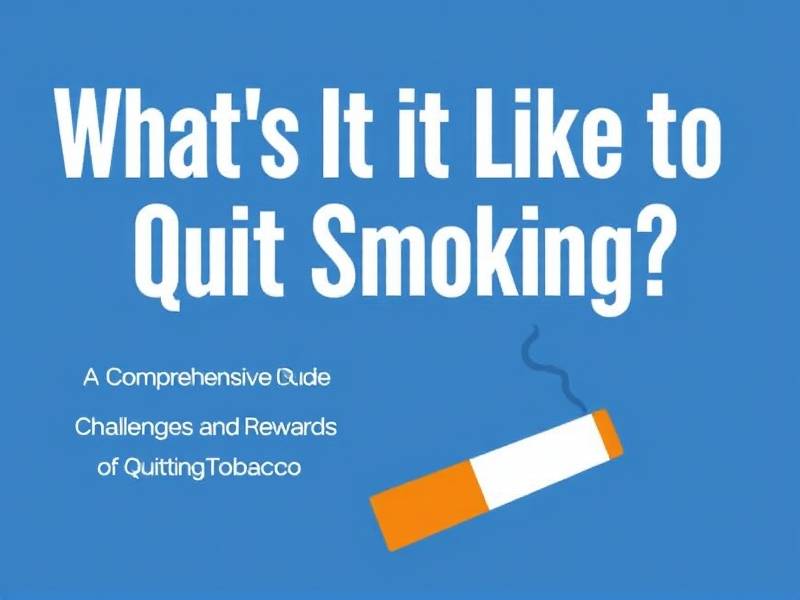What's It Like to Quit Smoking? A Comprehensive Guide to the Challenges and Rewards of Quitting Toba
Understanding the Smoking Habit
The first step in quitting smoking is understanding why you smoke. Is it for relaxation, stress relief, or simply out of habit? Recognizing the triggers and psychological aspects of smoking can help you develop a more effective strategy for quitting.
The Challenges of Quitting
Quitting smoking is not an easy journey. Common challenges include nicotine withdrawal symptoms, cravings, and social pressure. Here are some tips to help you navigate these hurdles:
Nicotine Withdrawal Symptoms
Nicotine withdrawal can be uncomfortable, with symptoms like irritability, headaches, and insomnia. To manage these symptoms:

- Stay Hydrated: Drink plenty of water to stay hydrated and alleviate some withdrawal symptoms.
- Stay Active: Regular exercise can help reduce withdrawal symptoms by releasing endorphins.
- Mindfulness Techniques: Practices like meditation and deep breathing exercises can help keep your mind off cravings.
Cravings
Cravings are a common challenge when trying to quit smoking. To combat them:
- Identify Triggers: Recognize situations that typically lead to cravings and prepare alternative activities or coping strategies.
- Reward Yourself: Set small goals and reward yourself for each milestone reached.
- Use Substitute Behaviors: Find healthy alternatives to smoking, such as chewing gum or taking a walk.
Social Pressure
Social pressure can make quitting difficult. Here are some tips:
- Seek Support: Join a support group or find an accountability partner.
- Be Assertive: Communicate your decision clearly to friends and family.
- Avoid Triggering Situations: Stay away from places where you're likely to be tempted.
The Rewards of Quitting
Despite the challenges, quitting smoking offers numerous benefits that make it worth the effort:

Health Benefits
Quitting smoking can significantly improve your health in many ways:
- Heart Health: Reduces the risk of heart disease by improving blood flow.
- Respiratory Health: Improves lung function and reduces the risk of respiratory diseases.
- Cancer Risk Reduction: Reduces the risk of various types of cancer.
Financial Benefits
Quitting smoking also has financial benefits:
- Save Money: Smokers spend a significant amount on cigarettes each year; quitting can save you money that can be used for other expenses.
- Invest in Yourself: Use the money saved on cigarettes to invest in your well-being, such as fitness classes or therapy sessions.
Personal Growth
Quitting smoking is a powerful act of self-care that promotes personal growth:
- Increased Self-Esteem: Successfully overcoming addiction boosts self-esteem and confidence.
- Greater Focus: Without nicotine interfering with concentration, you'll experience improved focus and productivity.
Conclusion: Embrace Your Journey Towards a Healthier You
Quitting smoking is a challenging but rewarding journey. By understanding the challenges, preparing yourself mentally and physically, seeking support when needed, and focusing on the benefits that await you, you'll be well on your way to breaking free from this harmful habit. Remember: every step towards quitting is progress—embrace your journey towards a healthier life!
